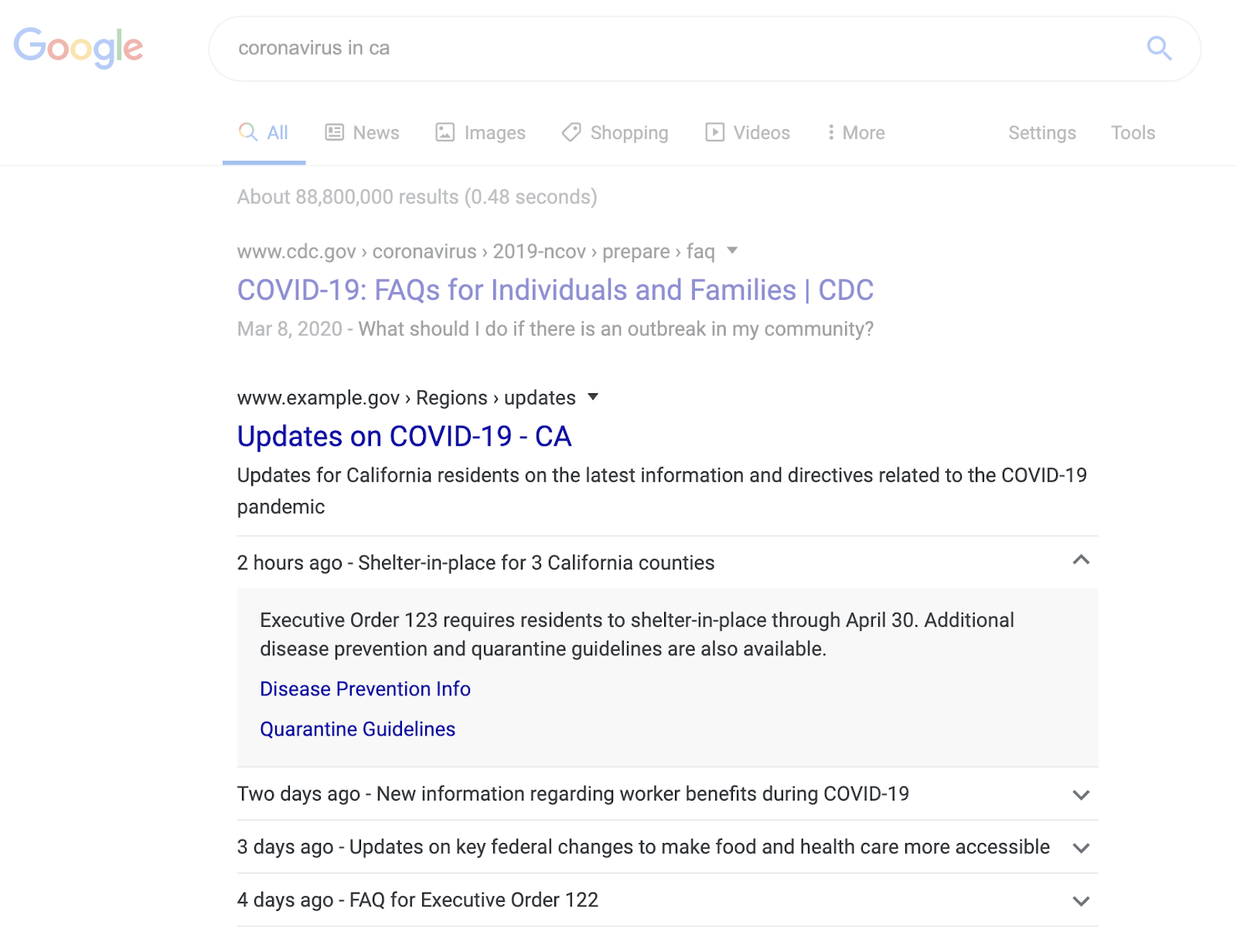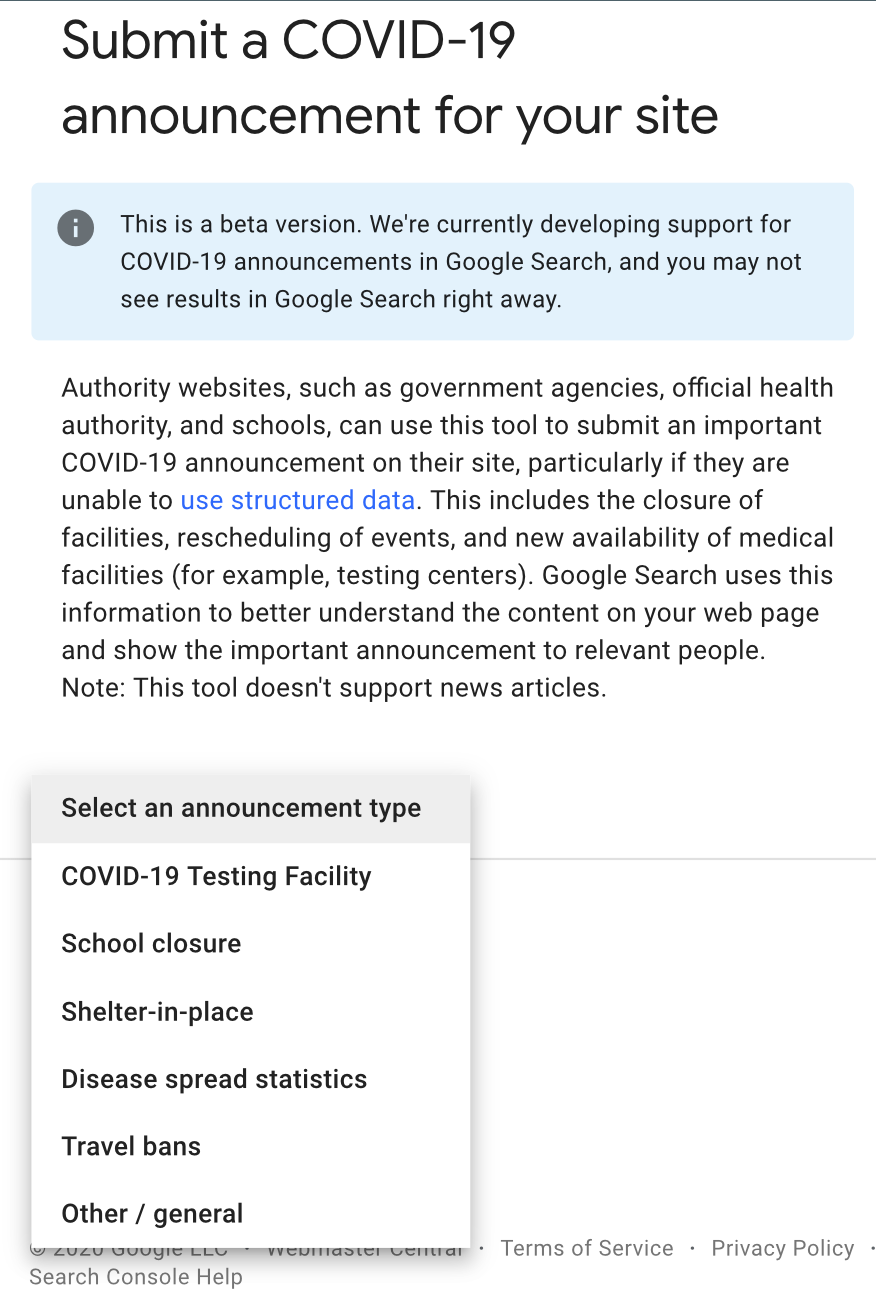05 Apr Google Reveals What COVID-19 Special Announcement Schema Looks Like in Search via @MattGSouthern
Google has now shared examples of what COVID-19 special announcement structured data will look like when used in search results.
A brand new set of structured data markup for special announcements related to COVID-19 was introduced last month.
Google officially stated last week it will support the new structured data, but didn’t say when it will be used in search results.
At the time, it was also not known what the markup would look like when Google uses it to render search snippets.
Now, Google has shown us what it will look like.
We also have more information about when the markup is rolling out to search results.
Here are all the details.
COVID-19 Special Announcements in Search Results
When the new special announcement structured data is added to a page, the content becomes eligible to appear with a COVID-19 special announcement rich result.
Google will render the COVID-19 special announcement in addition to the page’s regular snippet description.
Here’s what it will look like:


As shown in the example above, a COVID-19 announcement rich result contains a short summary that can be expanded to view more.
However, Google notes the format may change over time.
Searchers may not see the changes right away because special announcement rich results are only eligible to appear for certain sites.
Here’s more on that.
Only Certain Sites Are Eligible For COVID-19 Rich Results
For the time being, COVID-19 special announcement rich results will only appear health and government agency sites.
The rich results are intended to cover important updates like school closures, stay-at-home directives, event cancellations, changes to business hours, and things of that nature.
Although the rich results are now being rolled out, Google says it’s still “actively developing” this feature.
That means it may be expanded to include more types of sites eventually.
Implementing COVID-19 Special Announcements
Site owners can implement COVID-19 special announcement markup in two ways:
- Structured data on the web page
- Submitting announcements in Search Console
Here’s more information about the two methods of implementation.
Structured Data
Google’s top recommended way of implementing COVID-19 special announcement markup is by adding structured data to individual web pages.
See: Google to Support New COVID-19 Special Announcement Schema in Search Results
“We recommend using this method because it is the easiest way for us to take in this information, it enables reporting through Search Console in the future, and enables you to make updates.”
Submitting Announcements in Search Console
Google offers an alternative method for implementing the special announcement markup for those without the technical ability to utilize structured data.
A new tool in Search Console, which is currently in beta testing, allows site owners to submit a special announcement by filling out a form.
Here’s what it looks like when navigating to the tool:


After selecting the type of announcement, Search Console asks for the following set of information (which is the same for all announcement types):
- Announcement start data
- Announcement end date
- A title
- A description
- Region or specific location for the announcement
Search Console also offers the option of linking out to resources about disease prevention, getting tested, latest news updates, and other relevant information.
Google notes that this method of submitting special announcements is not preferred and is only intended as a short-term solution.
Announcements submitted this way will only be displayed for a maximum of 30 days.
Site owners will have to manually update the announcements if they’re still applicable after the 30 day mark.
Lastly, any data for announcements submitted this way will not be tracked in the rich results report in Search Console.
So it’s a short-term solution with no data tracking capabilities, but it gets the job done if you need to get important announcements in search results ASAP.
Source: Google Webmaster Central Blog
Sorry, the comment form is closed at this time.